Fan cooled heat exchanger Texas City Texas
Fan cooled heat exchanger Texas City Texas
Dynamic scraped surface heat exchanger Fan cooled heat exchanger Texas City Texas
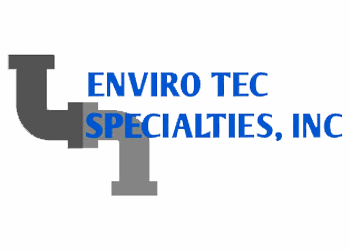
Fan cooled heat exchanger Texas City Texas
Another type of heat exchanger is called “(dynamic) scraped surface heat exchanger”. This is mainly used for heating or cooling with high-viscosity products, crystallization processes, evaporation and high-fouling applications. Long-running times are achieved due to the continuous scraping of the surface, thus avoiding fouling and achieving a sustainable heat transfer rate during the process. Fan cooled heat exchanger Texas City Texas
Phase-change heat exchangers Fan cooled heat exchanger Texas City Texas
Typical kettle reboiler used for industrial distillation towers Fan cooled heat exchanger Texas City Texas
Typical water-cooled surface condenser Fan cooled heat exchanger Texas City Texas
In addition to heating up or cooling down fluids in just a single phase, heat exchangers can be used either to heat a liquid to evaporate (or boil) it or used as condensers to cool a vapor and condense it to a liquid. In chemical plants and refineries, reboilers used to heat incoming feed for distillation towers are often heat exchangers. Fan cooled heat exchanger Texas City Texas
Distillation set-ups typically use condensers to condense distillate vapors back into liquid. Fan cooled heat exchanger Texas City Texas
Power plants that use steam-driven turbines commonly use heat exchangers to boil water into steam. Heat exchangers or similar units for producing steam from water are often called boilers or steam generators. Fan cooled heat exchanger Texas City Texas
In the nuclear power plants called pressurized water reactors, special large heat exchangers pass heat from the primary (reactor plant) system to the secondary (steam plant) system, producing steam from water in the process. These are called steam generators. All fossil-fueled and nuclear power plants using steam-driven turbines have surface condensers to convert the exhaust steam from the turbines into condensate (water) for re-use. Fan cooled heat exchanger Texas City Texas
To conserve energy and cooling capacity in chemical and other plants, regenerative heat exchangers can transfer heat from a stream that must be cooled to another stream that must be heated, such as distillate cooling and reboiler feed pre-heating. Fan cooled heat exchanger Texas City Texas
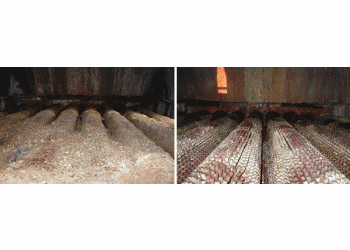
Fan cooled heat exchanger Texas City Texas
This term can also refer to heat exchangers that contain a material within their structure that has a change of phase. This is usually a solid to liquid phase due to the small volume difference between these states. This change of phase effectively acts as a buffer because it occurs at a constant temperature but still allows for the heat exchanger to accept additional heat. One example where this has been investigated for use in high power aircraft electronics. Fan cooled heat exchanger Texas City Texas
Heat exchangers functioning in multiphase flow regimes may be subject to the Ledinegg instability. Fan cooled heat exchanger Texas City Texas
Direct contact heat exchangers Fan cooled heat exchanger Texas City Texas]
Direct contact heat exchangers involve heat transfer between hot and cold streams of two phases in the absence of a separating wall. Thus such heat exchangers can be classified as:
- Gas-liquid Fan cooled heat exchanger Texas City Texas
- Immiscible liquid-liquid Fan cooled heat exchanger Texas City Texas
- Solid-liquid or solid – gas Fan cooled heat exchanger Texas City Texas
Most direct contact heat exchangers fall under the Gas-Liquid category, where heat transferred between a gas and liquid in the form of drops, films or sprays. Fan cooled heat exchanger Texas City Texas
Such types of heat exchangers used predominantly in air conditioning, humidification, industrial hot water heating, water cooling and condensing plants. Fan cooled heat exchanger Texas City Texas
Microchannel heat exchangers[Fan cooled heat exchanger Texas City Texas
Fan cooled heat exchanger Texas City Texas Micro heat exchangers, Micro-scale heat exchangers, or microstructured heat exchangers are heat exchangers in which (at least one) fluid flows in lateral confinements with typical dimensions below 1 mm. The most typical such confinement is microchannels, which are channels with a hydraulic diameter below 1 mm. Microchannel heat exchangers can be made from metal, ceramic, Microchannel heat exchangers can be used for many applications including:
- high-performance aircraft gas turbine engines Fan cooled heat exchanger Texas City Texas
- heat pumps Fan cooled heat exchanger Texas City Texas
- air conditioning Fan cooled heat exchanger Texas City Texas
HVAC air coils Fan cooled heat exchanger Texas City Texas
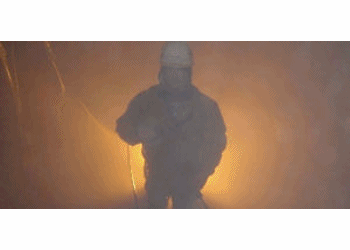
Fan cooled heat exchanger Texas City Texas
One of the widest uses of heat exchangers is for air conditioning of buildings and vehicles. This class of heat exchangers is commonly called air coils, or just coils due to their often-serpentine internal tubing. Liquid-to-air or air-to-liquid HVAC coils are typical of modified crossflow arrangement. In vehicles, heat coils are often called heater cores. Fan cooled heat exchanger Texas City Texas
On the liquid side of these heat exchangers, the common fluids are water, a water-glycol solution, steam, or a refrigerant. For heating coils, hot water and steam the most common, and this heated fluid supplied by boilers, for example. For cooling coils, chilled water and refrigerant are most common. Chilled water supplied from a chiller that potentially located very far away, but refrigerant must come from a nearby condensing unit. When a refrigerant used, the cooling coil is the evaporator in the vapor-compression refrigeration cycle. HVAC coils that use this direct-expansion of refrigerants commonly called DX coils. Some DX coils “microchannel” type. Fan cooled heat exchanger Texas City Texas
On the air side of HVAC coils, a significant difference exists between those used for heating and those for cooling. Due to psychrometrics, air that cooled often has moisture condensing out of it, except with extremely dry air flows. Heating some air increases that airflow’s capacity to hold water. So heating coils need not consider moisture condensation on their air-side, but cooling coils must adequately designed and selected to handle their particular latent (moisture) as well as the sensible(cooling) loads. The water that is removed is called condensate. Fan cooled heat exchanger Texas City Texas
For many climates, water or steam HVAC coils can exposed to freezing conditions. Because water expands upon freezing, these somewhat expensive and difficult to replace thin-walled heat exchangers can easily damaged or destroyed by just one freeze. As such, freeze protection of coils is a major concern of HVAC designers, installers, and operators. Fan cooled heat exchanger Texas City Texas
The introduction of indentations placed within the heat exchange fins controlled condensation, allowing water molecules to remain in the cooled air. This invention allowed for refrigeration without icing of the cooling mechanism. Fan cooled heat exchanger Texas City Texas
The heat exchangers in direct-combustion furnaces, typical in many residences, are not ‘coils’. They , instead, gas-to-air heat exchangers that typically made of stamped steel sheet metal. The combustion products pass on one side of these heat exchangers, and air to heat on the other. A cracked heat exchanger is, therefore, a dangerous situation that requires immediate attention because combustion products may enter living space. Fan cooled heat exchanger Texas City Texas
Helical-coil heat exchangers Fan cooled heat exchanger Texas City Texas
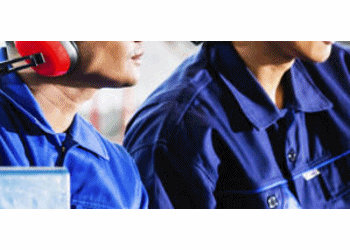
Fan cooled heat exchanger Texas City Texas
Helical-Coil Heat Exchanger sketch, which consists of a shell, core, and tubes (Scott S. Haraburda design). Fan cooled heat exchanger Texas City Texas
Although double-pipe heat exchangers are the simplest to design, the better choice in the following cases would be the helical-coil heat exchanger (HCHE):
- The main advantage of the HCHE, like that for the SHE, is its highly efficient use of space, especially when it’s limited and not enough straight pipe can be laid. Fan cooled heat exchanger Texas City Texas
- Under conditions of low flowrates (or laminar flow), such that the typical shell-and-tube exchangers have low heat-transfer coefficients and becoming uneconomical. Fan cooled heat exchanger Texas City Texas
- When there is low pressure in one of the fluids, usually from accumulated pressure drops in other process equipment. Fan cooled heat exchanger Texas City Texas
- When one of the fluids has components in multiple phases (solids, liquids, and gases), which tends to create mechanical problems during operations, such as plugging of small-diameter tubes. Cleaning of helical coils for these multiple-phase fluids can prove to be more difficult than its shell and tube counterpart; however, the helical coil unit would require cleaning less often. Fan cooled heat exchanger Texas City Texas
These have been used in the nuclear industry as a method for exchanging heat in a sodium system for large liquid metal fast breeder reactors since the early 1970s, using an HCHE device invented by Charles E. Boardman and John H. Germer. There are several simple methods for designing HCHE for all types of manufacturing industries, such as using the Ramachandra K. Patil (et al.) method from India and the Scott S. Haraburda method from the United States. Fan cooled heat exchanger Texas City Texas
However, these are based upon assumptions of estimating inside heat transfer coefficient, predicting flow around the outside of the coil, and upon constant heat flux. Yet, recent experimental data revealed that the empirical correlations are quite in agreement for designing circular and square pattern HCHEs. During studies published in 2015, several researchers found that the boundary conditions of the outer wall of exchangers were essentially constant heat flux conditions in power plant boilers, condensers and evaporators; while convective heat transfer conditions were more appropriate in food, automobile and process industries. Fan cooled heat exchanger Texas City Texas
Spiral heat exchangers Fan cooled heat exchanger Texas City Texas
Schematic drawing of a spiral heat exchanger. Fan cooled heat exchanger Texas City Texas
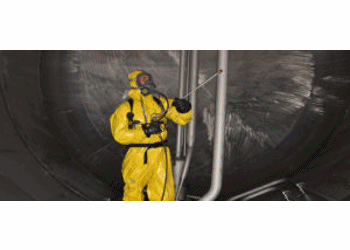
Fan cooled heat exchanger Texas City Texas
A modification to the perpendicular flow of the typical HCHE involves the replacement of shell with another coiled tube, allowing the two fluids to flow parallel to one another, and which requires the use of different design calculations. These are the Spiral Heat Exchangers (SHE), which may refer to a helical (coiled) tube configuration, more generally, the term refers to a pair of flat surfaces that coiled to form the two channels in a counter-flow arrangement. Each of the two channels has one long curved path. A pair of fluid ports connected tangentially to the outer arms of the spiral, and axial ports common, but optional. Fan cooled heat exchanger Texas City Texas
The main advantage of the SHE its highly efficient use of space. This attribute often leveraged and partially reallocated to gain other improvements in performance, according to well known tradeoffs in heat exchanger design. (A notable tradeoff capital cost vs operating cost.) A compact SHE may used to have a smaller footprint and thus lower all-around capital costs, or an oversized SHE may used to have less pressure drop, less pumping energy, higher thermal efficiency, and lower energy costs. Fan cooled heat exchanger Texas City Texas
Construction Fan cooled heat exchanger Texas City Texas
The distance between the sheets in the spiral channels maintained by using spacer studs that welded prior to rolling. Once the main spiral pack has rolled, alternate top and bottom edges welded and each end closed by a gasket flat or conical cover bolted to the body. This ensures no mixing of the two fluids occurs. Any leakage is from the periphery cover to the atmosphere, or to a passage that contains the same fluid.
Self-cleaning Fan cooled heat exchanger Texas City Texas Fan cooled heat exchanger Texas City Texas
Spiral heat exchangers often used in the heating of fluids that contain solids and thus tend to foul the inside of the heat exchanger. The low-pressure droplets the SHE handle fouling more easily. The SHE uses a “self-cleaning” mechanism, whereby fouled surfaces cause a localized increase in fluid velocity, thus increasing the drag (or fluid friction) on the fouled surface, thus helping to dislodge the blockage and keep the heat exchanger clean. “The internal walls that make up the heat transfer surface often rather thick, which makes the SHE very robust, and able to last a long time in demanding environments.” They also easily cleaned, opening out like an oven where any buildup of foulant can removed by pressure washing.
Self-cleaning water filters used to keep the system clean and running without the need to shut down or replace cartridges and bags.Fan cooled heat exchanger Texas City Texas.
Call Now:+1-856-678-4004
envirotec@tiplus.com
(Texas City, Texas) (Baton Rouge, Louisiana)
Houston •San Antonio •Dallas •Austin •Fort Worth •El Paso •Arlington •Corpus •Christi •Plano •Laredo •Lubbock •Irving •New Iberia •Luling •West Monroe •Ruston •Thibodaux •Natchitoches •Plaquemine •Abbeville •Leesville •Bastrop •Crowley •Donaldsonville •Franklin •Bogalusa •Minden •Eunic •Baton Rouge •Shreveport •Lafayette •Lake Charles •Opelousas •Morgan City •Monroe

